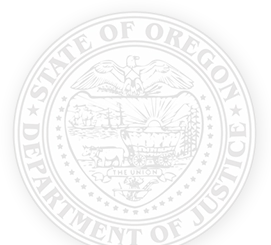Oregon Attorney General Dan Rayfield today welcomed a court ruling that seeks to end Google’s anticompetitive practices and restore competition in the marketplace.
“This week’s ruling is a big deal. For years, Google has used its dominance to shut out rivals and limit the choices people have when they go online to search. This decision helps level the playing field, opening the door for innovation and ensuring that Oregonians—and everyone else—benefit from a fairer, more competitive marketplace,” said Attorney General Rayfield.
Oregon, alongside a coalition of 38 attorneys general in December 2020 filed suit against Google for illegally maintaining its monopoly power through a series of anticompetitive contracts and practices. That case built on an earlier lawsuit brought by the U.S. Department of Justice in October 2020. The two cases were consolidated in 2021.
In August 2024, a federal judge ruled that Google had abused its monopoly power and harmed consumers in online search and search advertising. Earlier this year, the states and the Justice Department put forward a comprehensive package of remedies to restore competition. This week’s ruling adopts some of those remedies, which may lead to more consumer choices and spur innovation in the search marketplace.
Some of those remedies include:
- Ending exclusive deals. Google is barred from entering or maintaining exclusive contracts to distribute Google Search, Chrome, Google Assistant, or the Gemini app. The company also can’t tie its Play Store license or revenue-sharing payments to the preloading or placement of its search products.
- Opening up data. Google must share certain search index and user-interaction data with qualified competitors to help them build and improve their own search tools.
- Leveling the ad market. Google has to offer qualified competitors access to its search and search-text ads syndication services—largely on commercial terms it already uses—so rivals can develop their own capacity.
- Boosting transparency. Google must publicly disclose major changes to its ad auctions to prevent hidden tweaks that could secretly raise prices for advertisers.
“This case shows what’s possible when states and the Justice Department work together,” said Attorney General Rayfield. “That partnership will continue as we make the case in the D.C. Circuit that Google’s appeal should not stand. Our focus is on protecting fair competition—because that’s what leads to more choices for consumers and sparks new innovation online.”
